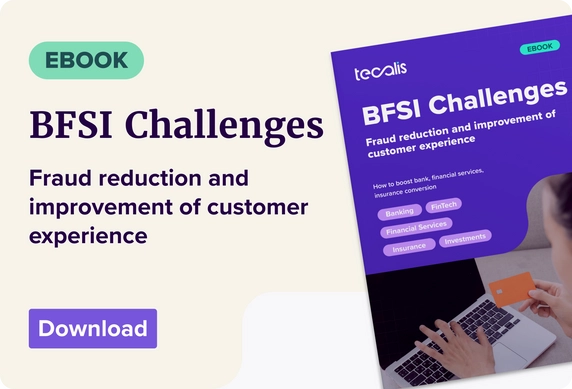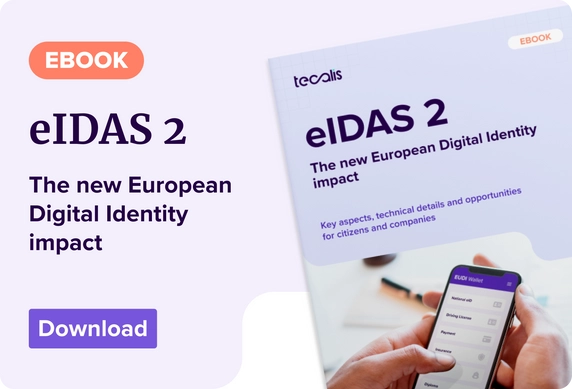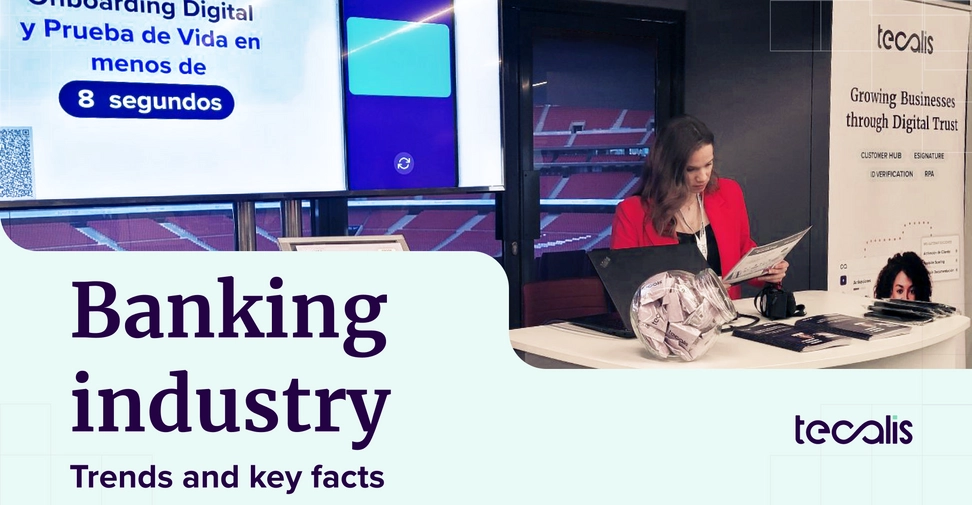Index
Get the latest news right in your inbox
The banking and finance industry is undergoing a series of truly momentous changes that may go unnoticed by some, but for others are a game changer. Financial industry professionals are looking at new tools to take advantage of the most impactful innovations.
The following is a review of the trends, keys and conclusions of a day of innovation and strategic collaboration that each year redefines the future of banking as we know it and from which new projects emerge that set the course for the industry and its players.
AI and Blockchain: a transformative duo for banking and RegTech
Despite the major changes, there are two issues that have dominated much of the conversation and headlines, and that is none other than the convergence of two disruptive technologies that is already happening: artificial intelligence (AI) and blockchain. The combination of these tools offers endless possibilities for improving the efficiency, security and transparency of financial services, opening the door to a new paradigm in which traditional banking merges with decentralized finance (DeFi).
In RegTech, AI and blockchain play a key role in automating and optimizing compliance processes. AI makes it possible to analyze large volumes of data to identify patterns and detect potential violations, while blockchain facilitates an immutable and auditable record of transactions, which significantly reduces the risk of fraud and increases trust in the system.
Some specific applications of AI and blockchain in RegTech include:
- Money laundering detection (AML): AI can analyze spending patterns and transactions to identify suspicious activity, while blockchain allows tracing the origin of funds more accurately.
- Know Your Customer (KYC): AI can automate identity verification and customer data management, while blockchain facilitates the creation of secure and verifiable digital identities or makes digital signatures possible.
- Regulatory reporting: AI can generate regulatory compliance reports automatically and accurately, while blockchain ensures the integrity and traceability of these reports.
The integration of AI and blockchain in RegTech not only benefits financial institutions, but also customers. Increased regulatory compliance translates into greater security for users, who can rest assured that their data and transactions are protected. In addition, process automation enables cost reductions and more efficient and personalized services.
It is important to note that while AI and blockchain offer endless possibilities for RegTech, they also present some challenges that need to be addressed. Data privacy, cybersecurity and governance are critical aspects that must be carefully considered to ensure responsible and ethical use of these technologies.
However, the potential benefits of AI and blockchain in banking and RegTech are so significant that it is worth investing in their development and responsible adoption. Collaboration between financial institutions, regulators and technology companies will be key to maximizing the potential of these tools and building a more secure, transparent and efficient financial future for all.

What banking industry experts say
The banking industry is at a turning point in its history, marked by a profound transformation driven by the convergence of several factors: the rise of second-generation digital technologies, the growing demand for hyper-personalized services, the emergence of new non-traditional competitors and the changing regulatory landscape. Below we categorize the findings by impact blocks:
A Dynamic Present:
- Digitalization: The adoption of technologies such as artificial intelligence (AI), blockchain, big data and cloud computing is revolutionizing the way banks operate and interact with their customers. Traditional banking services are being digitized, new business models are emerging and new players are emerging in the sector.
- Personalization: Customers are demanding more personalized, needs-centric banking experiences while demanding high-level security and privacy. Banks are using data analytics and AI to better understand their customers and offer them personalized products and services.
- New Competitors: The emergence of fintech and other disruptive players is challenging the way we understand certain financial products and services. Fintechs are innovating in range and distribution channels, forcing banks to adapt and compete more effectively.
- Regulation: The regulatory landscape is changing rapidly, with new rules seeking to address the emerging risks of digital technologies and promote competition and innovation in the financial sector. Automated compliance is shaping the news for many banks.
Figures Illustrating Change:
- Investment in technology: According to a study by Statista, global investment in fintech reached $221 billion in 2023, 50% more than in 2022.
- Adoption of mobile banking: A PwC study reveals that 84% of banking customers use mobile banking at least once a month.
- Fintech growth: According to CB Insights, the number of fintech companies worldwide will exceed 19,000 in 2023, 10% more than in 2022.


A Promising Future:
- Open Banking (Open Banking thanks to PSD3): Open banking, which enables secure sharing of financial data with third parties, is driving innovation and the development of new products and services.
- Banking as a Service (BaaS): BaaS enables non-financial companies to offer banking services to their customers, opening up new opportunities for collaboration and growth.
- Neobanks: Neobanks, which operate exclusively online and leverage digital technologies to offer more efficient and personalized services, are gaining ground in the market.
- Decentralized Finance (DeFi): DeFi, which uses blockchain to create financial systems without intermediaries, is emerging as an alternative to traditional banking services.
- New ways of performing digital onboarding: Driven by eIDAS2, the methods for performing KYB, KYC, due diligence and evaluating transactions will be further simplified and expanded.
Challenges and Opportunities:
- Cybersecurity: Increasing reliance on digital technologies increases the risk of cyberattacks. Banks must invest in robust security measures to protect their customers' data.
- Financial inclusion: Digitization can exclude segments of the population that do not have access to the internet or digital technologies. Banks must work to ensure financial inclusion for all sectors of society.
- Social responsibility: Banks must demonstrate a commitment to social responsibility and sustainability to maintain the trust of their customers and stakeholders.
In short, the banking industry is in a time of great transformation. Digitalization, personalization, the emergence of new competitors and the changing regulatory landscape are redefining the industry. Banks that adapt to these changes and take advantage of the opportunities offered by new technologies will have a promising future.

New channels in banking and their tools to reach more segments
BSS systems have taken on a major role in telcos, being online platforms that companies make available to their agents to facilitate the management of their business and all commercial actions.
These portals offer a wide range of functionalities allowing access to information and documentation and activation of bank accounts in seconds by subsidiaries, partners or new channels activated also in record time and deployed with perfect time-to-market. They find all the commercial information, such as tariffs, general and specific conditions of contracts, product manuals, etc. They can also provide access to technical documentation, such as forms, guides and circulars.
Now coming to BFSIs, these retail management platforms enable the placement of banking institutions' retail locations in new market places, such as shopping malls, street-level spots, airports and so on.
This represents a range of possibilities for the banking of the future. The new tools are not just a commercial management platform (CRM, ERP, etc.), but a complete ecosystem that encompasses a wide range of functionalities and tools designed specifically for the needs of the banking sector.
Among the most outstanding possibilities we find:
- Omni-channel: Tools such as Tecalis Customer Hub centralize customer and channel management on a single platform, allowing banks to offer a seamless and homogeneous experience across all locations where the institution has a presence: in-person, online, mobile and telephone. This translates into increased customer satisfaction, reduced costs and optimized resources.
- Agility and efficiency: The platform automates numerous manual processes, such as account opening, loan applications or product management, freeing up employee time to focus on more value-added tasks.
- Know Your Customer (KYC) and digital onboarding: Tecalis Customer Hub integrates customer activation and enrollment systems and facilitates compliance with KYC and AML regulations, while streamlining the onboarding process for new customers, significantly reducing onboarding times and improving the customer experience.
- Cross-selling and upselling in any location: The platform provides employees with the necessary tools to identify sales opportunities and at the business level to register business partners and locate in segment locations, applying cross-selling and upselling, allowing them to offer customers customized products and services that meet their real needs at the right time and in the right place.
- Data analysis and decision making: Tecalis Customer Hub offers powerful data analysis tools that enable banks to gain a complete view of their customers' behavior, identify market trends and make more informed strategic decisions.
- Personalization and loyalty: The platform enables banks to create personalized experiences for each customer, offering them relevant products and services and improving their satisfaction.
- Integration with existing systems: Tecalis Customer Hub integrates easily with banks' existing systems, protecting the technology investment made and maximizing ROI.
Platforms such as Tecalis Customer Hub are positioned as the perfect strategic ally for banks, fintechs and financial institutions looking to drive their digital transformation and redefine the way they interact with their customers.
Regulatory changes impacting financial industry
In this context, regulators play a key role in establishing standards and guidelines that seek to protect consumers and streamline interconnection or international interoperability to promote financial stability and foster competition.
Among the most recent regulatory changes impacting the financial and banking industry, the following stand out:
- Basel IV: This set of reforms to the Basel Accords aims to strengthen the resilience of the global banking system and reduce systemic risks. The new rules will come into force in 2023 and 2024, and will impose stricter capital and liquidity requirements on banks.
- MiFID II: The Markets in Financial Instruments Directive II (MiFID II) and the MiFID II Regulation (MiFIR), which entered into force in 2018, aim to increase transparency and investor protection in European financial markets. The rules have introduced new obligations for financial institutions, such as the obligation to provide more detailed information to clients and the implementation of measures to reduce high-frequency trading.
eIDAS 2 and PSD3: the most important standards
Two of the new standards with the greatest potential impact on the financial and banking industry are eIDAS 2 and PSD3:
- eIDAS 2: The recently approved eIDAS 2 Regulation updates and strengthens the original eIDAS Regulation of 2014, which established a framework for electronic authentication and electronic signature services in the European Union. This involves a radical change in all KYC, KYB and risk and fraud scoring processes. The eIDAS 2 aims to increase trust in digital transactions and facilitate the provision of cross-border services. Financial institutions offering online services will have to comply with eIDAS 2 requirements, which may involve the adoption of new authentication and e-signature solutions.
- PSD3: The Payment Services Directive 3 (PSD3), which will come into force in 2024, will replace the 2015 PSD2. PSD3 aims to promote innovation and competition in the payments sector, as well as strengthen consumer protection. Financial institutions will have to comply with the new PSD3 requirements, which may involve adapting their products and services and adopting new technologies, such as the Payment Initiation API (PIS) and the Account Information Request API (AISP).
In general, new regulatory changes are driving greater transparency, consumer protection and efficiency in the financial and banking industry. Compliance with them is absolutely simple and automatable thanks to RegTech solutions, which beyond responding to compliance and avoiding sanctions, allow taking advantage of the opportunities provided by the new regulatory frameworks in addition to providing new associated tools that grow both companies in the banking sector and large institutions as well as FinTech and other players.


Tecalis solutions for banking and financial services
Tecalis is a leading RegTech solutions company that offers unique value to the banking sector. Through its wide range of systems and products, it helps banking players to optimize, simplify, streamline and secure all processes, from the first contact with the customer to the signing of the contract or the granting of a mortgage. Tecalis' main solutions for the banking sector include:
- Digital Onboarding (KYC/AML/Risk): Tecalis offers a complete solution for digital onboarding management, including customer identity verification (KYC), anti-money laundering (AML) and risk assessment with media screening and ongoing monitoring.
- KYB, advanced document processing (second-generation OCR with AI) and automated notarization and power of attorney verification: For enterprise customers, Tecalis has solutions to complex use cases for advanced due diligence processes and all types of B2B segments.
- Electronic Signature (Digital contracting and certified electronic notifications): Allowing the electronic signature of contractual documents and the sending of certified electronic notifications, with total security and legal validity BFSI contracts are sealed and validated.
- Marketing (Customer Hub - Marketing Portal): Acting as a centralized portal for the management of new disruptive branches it also counts as an Agent Portal to facilitate the management of its customer portfolio.
With more than 10 years of experience in the banking market, Tecalis has a broad customer base and world-class partners in more than 20 countries. Its solutions are designed to solve the main challenges of the BFSI industry, including cost and time management reduction, improved customer experience and seamless security.
























